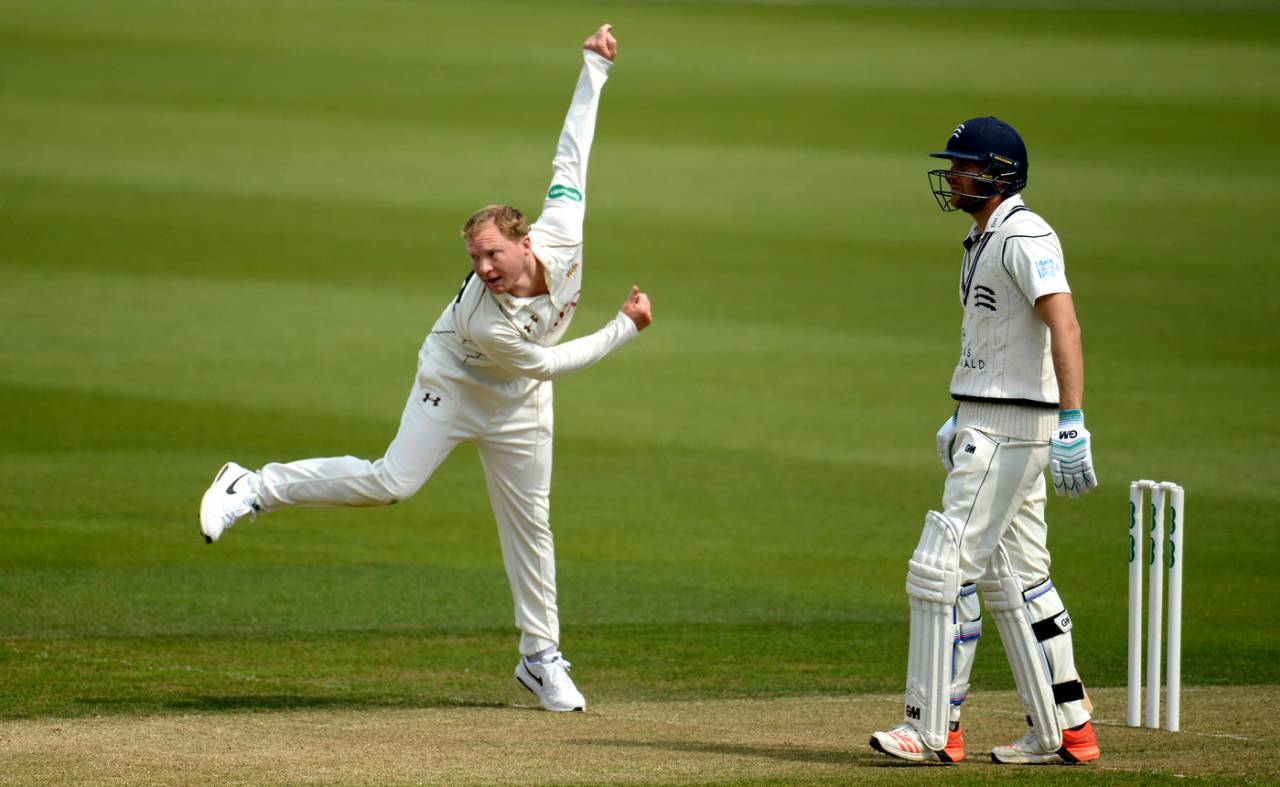Critics of the
England tour party to Bangladesh say that one player is too young and the other is too old. The more positive argue that 38-year-old
Gareth Batty is a wizened pro who'll bring spirit, guile, and a steady offspinner's hand to the subcontinent this winter, and that the 19-year-old opener,
Haseeb Hameed, is an exciting new prospect ready to take on Test cricket. Coach Trevor Bayliss quickly rolled out the cliché, "If he's good enough, he's old enough", when challenged on the greenness of Alastair Cook's potential opening partner.
Nineteen is young, but not that young. Pakistan's Hasan Raza made his Test debut against Zimbabwe aged only 14. Pelé first played for Brazil at 16, an 18-year-old Muhammad Ali won gold at the 1960 Olympics, and according to the Paul Hardcastle hit song "19", this was the average age of a US combat soldier in the Vietnam War.
Ultimately, age is only a number, and how you've lived your life is a better measure of maturity and character. Chatting with Phil Walker of
All Out Cricket, the "preternaturally mature" Hameed revealed that he'd already been asked if he was ready for Test cricket and replied that he most definitely was. "Because if I don't believe that I'm ready, then nobody else will." His county stats, and
those hundreds in each innings of a Roses match to make him the first Lancashire batsman to score consecutive hundreds against Yorkshire, stand up to scrutiny. He can bat, obviously. But more importantly, I believe, for the longevity of a career on the international treadmill, is the "boyish innocence and delight at being on a cricket field," noted by Scyld Berry in the
Telegraph, paired with "an astute cricketing brain when calculating risk" that will preserve his talent.
The essence of this level up from county to Test cricket is mirrored in the rite of passage for the club cricket junior - that first daunting step into "men's" cricket. While the skills in the professional game are infinitely superior, a debut is a debut in any sport. Maybe you're a prodigy, scoring tons and rifling out sides with your skiddy outswingers. Or maybe your first team is on tour, which means the seconds are short. And you can throw and catch, and no one else old enough to buy a round in the pub is available. Either way, you're stepping onto a pitch with the "men".
My own induction to the Brave New World of senior cricket is still a vivid memory. I was 13, and it was a game for Barkby United seconds versus Birstall Village on their park pitch. I'd got a phone call from the skipper on Wednesday and spent the rest of the week terrified and excited. Although I'd most likely be batting at 11 and not bowling, I'd be walking into a changing room full of blokes. Men swearing, talking about beer and women. Perhaps even cricket. And at the age of 13, when all you want to do is be older, you want to impress and be noticed, be "one of the lads", no matter how optimistic this sentiment seems. So when I was called upon to umpire, something I'd never done at junior level, I wavered. "Get out there," ordered my skipper. "And keep your finger down." Drowned in an umpire's coat as big as a sail, I was willing every ball off the stumps so I wouldn't have to adjudge an lbw. Then a wicket fell and out came my skipper. I can see him now, fidgety and nervous, setting off on a suicidal run, diving towards the crease, and then crawling towards the crease, covered in dirt, the bails off, the opposition leaping with a celebratory appeal, and my fear-frozen hands wedged into the oversized pockets.
I was sworn at by the bowler and later praised by my skipper in the pavilion. I think someone even bought me a lager shandy, one of the veterans wise enough to know that a simple gesture like offering a drink welcomed the youngster into a circle of men.
This senior role, even the "fatherly figure", is the part that Gareth Batty can play this winter - and he's actually old enough to be Haseeb Hameed's dad. Not that he's just on tour to coach the rookies. I've seen Batty bowl at The Oval a few times this season, and his intensity with the ball is a force to be reckoned with. He has the snarling body language of an angry quick and the miserly powers to restrict even the most swashbuckling hitters. Yet is keeping runs down enough to pressure batsmen at Test level? And even if he does take wickets, shouldn't the selectors be looking beyond a player who's pushing his sell-by date - he'll actually be 39 if he's lucky enough to be thrown the ball in Bangladesh - and picking not just on merit, but future investment? Tell that to Pakistan press-up champ, Misbah-ul-Haq, who's fighting fit at 42.
Presence on a cricket field shouldn't be underrated, which Batty has, and so does Hameed, despite his seemingly tender age - still three years older than when Sachin Tendulkar made his Test debut. And while considering this article at the weekend I played a friendly match where our openers were father and son. I asked the talented 16-year-old if this was the first time he'd played senior cricket. "I've been playing for years," he answered. "Years?" I wondered. He shrugged. "I played my first men's game when I was eight. I hit my second ball for four."
If you're old enough, you're good enough.

